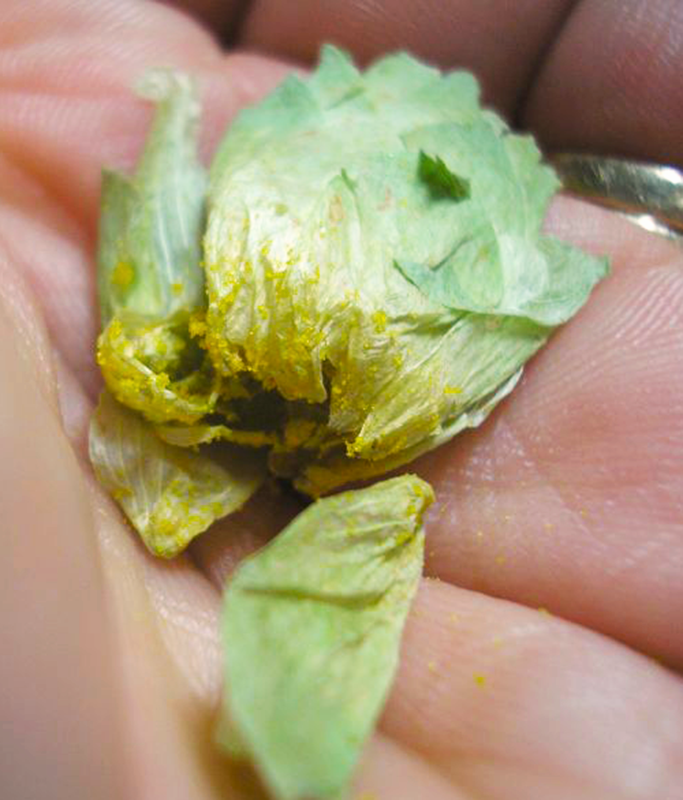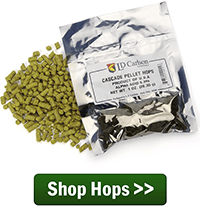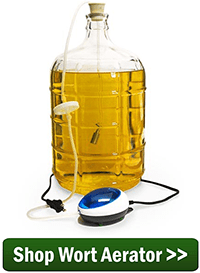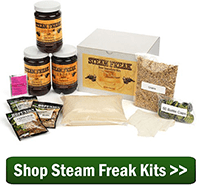 While the resins and alpha-acids found within hops are responsible for making beer bitter, essential oils within the hop cone contribute many of the flavor and aroma characteristics that we know and love in some of our favorite beers. If you drink a pale ale or an IPA with a wonderful citrus or pine aroma, you can thank the hop oils for delivering those delightful sensations.
While the resins and alpha-acids found within hops are responsible for making beer bitter, essential oils within the hop cone contribute many of the flavor and aroma characteristics that we know and love in some of our favorite beers. If you drink a pale ale or an IPA with a wonderful citrus or pine aroma, you can thank the hop oils for delivering those delightful sensations.
What are hop oils? How are they used in home brewing?
In the anatomy of the hop flower (or strobile), volatile hop oils account for about 1-3% of the weight of the cone. That may not seem like very much, but when you think about it, it doesn’t take a lot of hop oils to give your homebrew a delicious hop flavor.
Hop oils are more delicate than the bittering compounds found in the resins of the hop. That’s why hops for flavor and aroma are typically added towards the end of the boil. Boiling hops for too long drives the hop oils away through evaporation.
Aside from late-boil hopping, dry-hopping is another technique for imparting hop aroma. The hops are essentially steeped in the fermented beer for a number of days until the desired flavor and aroma is reached. An alternative to dry-hopping (if you’re so inclined), is to build your own hop back device, which circulates beer through the hop material to extract those precious hop oils. Here’s more information about adding hops to beer.
Since hop oils begin to degrade immediately after they’re harvested, it’s important that hops are stored properly, preferably nitrogen flushed, air tight, and frozen. In light of the fact that hops degrade so quickly, many people enjoy fresh or wet hopped beer, using the hops as soon as they’re harvested.
flushed, air tight, and frozen. In light of the fact that hops degrade so quickly, many people enjoy fresh or wet hopped beer, using the hops as soon as they’re harvested.
What are the types of hop oils and their characteristics?
Within the hop, there are several different types of hop oils. Their proportions vary depending both on the hop variety and on seasonal and local conditions. Learning a little about the characteristics of the different oils can help with understanding the flavor and aroma profiles that different types of hops can contribute to a beer. The four primary hop oils found in hops are listed below:
- Myrcene – Myrcene is the most prevalent hop oil found in many hop varieties, often comprising 50% or more of the total oils in the hop cone. Myrene is commonly associated with floral or citrus aromas in beer. Citra is an example of a hop variety with very high myrcene content.
- Humulene – Humulene is the second most common hop oil, though in some cases it may be in greater quantity than myrcene. It contributes woody, spicy, and herbal characteristics, and tends to withstand high
 temperature better than myrcene. Many of the European and noble hop varieties exhibit higher levels of humulene. Some humulene-dominant examples of hops include Hallertau and Vanguard.
temperature better than myrcene. Many of the European and noble hop varieties exhibit higher levels of humulene. Some humulene-dominant examples of hops include Hallertau and Vanguard.
- Caryophyllene – Though usually lower in quantity than myrcene and humulene, caryophyllene has a distinctive woody and herbal aroma, and often contributes an herbal character to beer. Northern Brewer and Perle hops often have higher levels of caryophyllene hop oil.
- Farnesene – Farnesene usually represents less than 1% of the oils in the hop, though may be as high as 10% or more of the total oil content. But just because it is lower in quantity, doesn’t make it any less potent than the other hop oils. Farnese usually contributes a woody or herbal character. It is well-represented in Czech Saaz, and Tettnang.
Because hop producers don’t usually label homebrewing hops with individual oil levels, it’s best to consult a resource such as YCH Hops to get a general sense of the oil content in your hops. You can also try the sniff test, rubbing the hops together between your hands, or make a tea from the hops.
This is just a basic overview of what hop oils are. Of course, the best way to learn about the flavor and aroma characteristics of different hop varieties is to brew beer with them. You might consider trying this simple experiment, and do a side-by-side comparison of several different hops.
Interested in learning more about hop oils?
Designing Great Beers is a great resources if you’d like to learn more about the specific types of hop oils.
—–
David Ackley is a beer writer, homebrewer, and self-described “craft beer crusader.” He holds a General Certificate in Brewing from the Institute of Brewing and Distilling and is founder of the Local Beer Blog.
